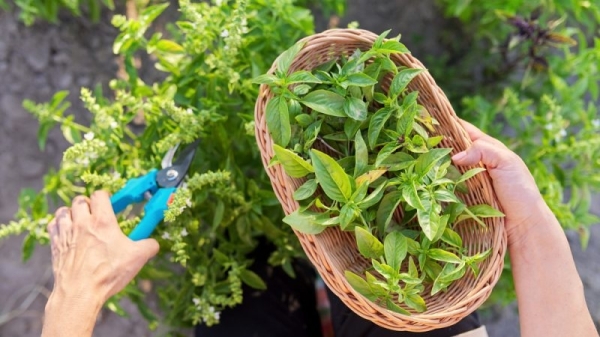Albanian herb farmers turn to foreign workers amid labour shortage

Albania’s medicinal herb sector is struggling with a shortage of workers due to emigration and has instead turned to employ foreigners from countries like Bangladesh and India to fill the gap.
Situated in the heart of the Balkans, Albania has made many headlines over the years for the illegal cultivation and export of cannabis. Still, few know about its thriving and legal medicinal herb sector.
Currently, the country cultivates 330 types of medicinal herbs, with 186 varieties exported worldwide. In addition, it employs tens of thousands of people and places the country among the global leaders for the export of sage and lavender.
More than 100,000 Albanian households are engaged in the medicinal herb trade, equivalent to one in seven families. The sector generates up to $48 million in exports that wing their way overseas to make essential oils, herbal remedies and garnishes in fancy restaurants. Farmers say the industry’s potential is at least double its current volume.
But, the labour issue is the most prominent and is fuelled by both internal migration and that beyond the country’s borders. Albanians have been leaving their country for centuries, but the latest waves are leaving entire villages devoid of young people. Over 700,000 people are estimated to have left in the last decade, particularly from the country’s north and more rural areas where the medicinal herb trade is located.
To combat the issue, some producers are looking to import labour.
“Initially, on 16 May, four employees will arrive from India who will be involved in the processing sector of one of the medicinal plant exporting factories. With the arrival of the first group of employees, the experimental phase will be implemented to know the work efficiency,” the President of the Association of Medicinal Herbs and Aromatic Plants, Filip Gjoka, told Monitor.
Meanwhile, the second group of 25 workers will arrive in June, along with spouses who will work in shifts with their partners, he added.
Gjoka said that the bringing in of foreign workers is not yet widespread, and these two groups will serve as a kind of experiment.
Landi, a farmer from Koplik in the north of the country, explains that “One of the main obstacles in our industry is labour. There aren’t many people now to work in the fields, mostly because of migration. The old people are still there, they still work, but just they’re there. They don’t have enough strength anymore to do what needs to be done.”
In addition to the lack of manpower, factories processing and exporting medicinal plants have also been hit by the devaluation of the euro and the dollar, the two main currencies used to pay for exports.
Gjoka said that for transactions of up to €50,000, depreciation is around 10%, compared to 2021.
However, the demand for medicinal plants remains high, and exports are dominated by herbs like sage, oregano, thyme, rosemary, lavender and black juniper. The value of herbs is also increasing, with black juniper increasing by 30% in the last year.
Most exports from Albania go to the EU and the US. In Europe, the demand for medicinal plants from Albania is led by Germany.
But the herb industry is not the only one looking abroad to fill vacant positions. Tourism, hospitality and manufacturing have all started engaging workers from Bangladesh, India, the Philippines, Kenya and even Afghanistan, utilising the refugees that found sanctuary in the country following the Taliban takeover.
In 2021, Prime Minister Edi Rama made it clear that Albania would welcome foreign workers to fill the skills and labour gap. In 2022, changes to residence permit laws also made it easier for foreigners to come and work in the country, including digital nomads.
(Alice Taylor | Exit.al)
More on the same topic...




